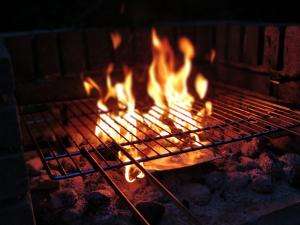Families risking carbon monoxide poisoning in effort to keep warm

Published by Professional Social Work magazine, 16 November 2022
Families facing fuel poverty are using barbecues indoors to cook on and keep warm - putting themselves at risk of carbon monoxide poisoning, the BASW England Conference heard.
Yorkshire Energy Doctor Kate Urwin said there is growing evidence of families using outdoor cooking equipment inside, lighting fires in disused fireplaces, and huddling around gas cookers.
Urwin – who set up the Yorkshire Energy Doctor in 2014 to support people struggling with fuel payments - said there are more than 3 million households in fuel poverty, though the figure is likely to be far greater as government statistics are two years behind.
She said: “Since April nearly one in four households have entered fuel poverty, affecting a lot of people who haven’t been impacted before, including people in work.
“People on prepayment meters are particularly affected as if you’ve got no money, clearly you aren’t going to be able to top up your meter.
“Energy prices are still double that of last winter, so that means people are having to find double the amount of money.”
According to Urwin, the Citizens Advice Bureau have helped nearly as many people top up their prepayment meters this year as in the whole of the past three years combined.
Speaking of the health risks as people desperately try to keep warm, she added: “We’re hearing stories of people bringing in barbecues to cook on, and people using gas camping stoves. They might look at that open fireplace or chimney and burn something to keep warm or turn on the gas hob rather than the heating and huddle around that.
“All of these things increase the risk of carbon monoxide poisoning.”
The NHS spends £2.5 billion each year treating cold-related illnesses and up to 18,000 people die from living in cold homes.
Health risks also include respiratory problems – three times as likely in children living in a cold home. Infants fail to gain weight, and people with underlying health conditions also become more unwell.
A coroner this week found that two-year-old Awaab Ishak died due to a respiratory condition caused by prolonged exposure to mould in his home managed by Rochdale Boroughwide Housing.
Social workers, Kate Urwin believes, are ideally placed to spot fuel poverty.
She said: “For all of us who are going out to visit vulnerable households, it’s a case of listening out for things. If people are telling you their house is always cold or they try not to turn the heating on, or a child is always ill, home visits are an ideal time to pick up on things.
“There are training courses run by energy advice companies, which can help you train to be able to help people get support.”
Both Citizens Advice and National Energy Action take referrals for training.
